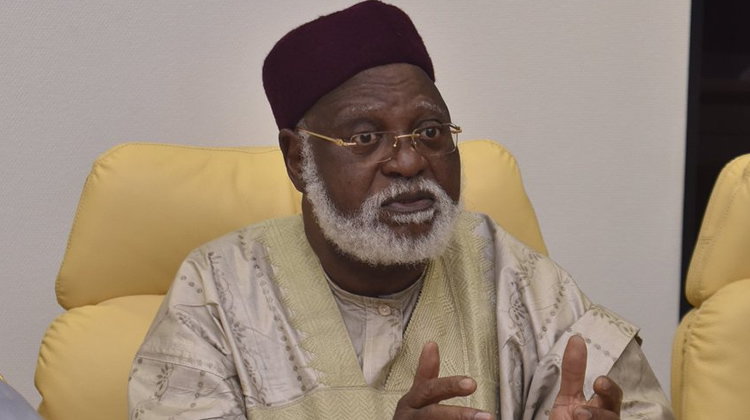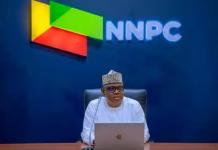Former Head of State, General Abdulsalami Abubakar (retd.) has expressed his conviction that should the federal government’s plan to increase petrol price becomes a reality, Nigeria’s poverty rate would astronomically increase.
He made this known on the backdrop of the recommendation by the Vice President Prof. Yemi Osinbajo-led National Executive Council (NEC) that petrol price should be pegged at N302 per litre.
The recommendation, BizWatch Nigeria, understands would mean that the petrol price would increase by 88%.
“With the recommendations, the committee added that the federal government would save N250 billion per month on petrol subsidy removal.
“At current rates, the PMS subsidy is reducing transfers into the federation by about NGN 250 billion per month, and could, if PMS subsidies are not eliminated, result in deductions of NGN 3 trillion in 2022,” NEC stated as it revealed why the petrol subsidy removal is pertinent.
Breaking his silence on the long-debated issue, Abdulsalami said the petrol subsidy removal would increase Nigeria’s poverty rate.
While revealing that ordinary Nigerians have since been struggling with basic needs due to the unfavourable condition of the economy, the former Nigerian leader added that a hike in the price of petrol may lead to societal disorder similar to #EndSARS (the nationwide protests against police brutality).
His words: “All of these tend to have negative effects on security. Nigeria now faces a food security crisis that is compounded by the COVID-19 global pandemic and banditry in many states of northern Nigeria.
“Both of these have disrupted the fragile value chains across the country and negatively impacted the ability of Nigerians to produce, process, and distribute food. The result is a continuing rise in the prices of food items beyond the reach of many Nigerian families.
“On top of all these, fuel prices are expected to rise significantly in the coming months as announced last November by the NNPC. When this happens, as the government has planned, it will push many millions deeper into poverty.
“Young people and women are the demographic groups most affected by the country’s dire economic outlook. For example, estimates by the National Bureau of Statistics show that while the national unemployment rate stood at 33 per cent by the end of 2020, unemployment for young people between ages 15 and 34 years was 10 per cent higher at 42.5 per cent
“If not carefully managed, the frustration of these groups can easily boil over into a national conflagration worse than what we saw months ago during the #ENDSARS protests. However, these are not doomsday predictions, but a warning to which all stakeholders must pay heed.”
What you should know
In the most recent Poverty and Inequality report released by the National Bureau of Statistics (NBS), Nigerians that are poor were estimated to be 82.9 million.
The report also shows that 52.1% of rural dwellers in Nigeria are poor, while only 18.04% of urban dwellers are classified as poor.
According to NBS, on average, 4 out of 10 individuals in Nigeria have real per capita expenditures below N137,430 per year, which translates to N376.5 per day.











